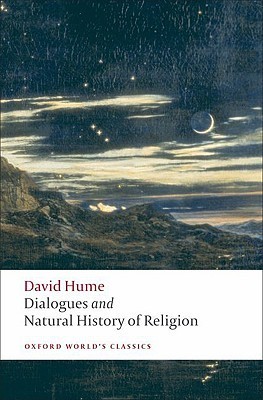
Dialogues Concerning Natural Religion
Book Description
What if the very foundations of faith were mere illusions? In "Dialogues Concerning Natural Religion," the clash of ideas transforms into an intellectual battlefield, where characters debate the existence of a divine creator. Their passionate exchanges unravel the mysteries of the cosmos, challenging the limits of reason and belief. As each argument unfolds, the tension rises—will faith stand resilient against the piercing questions of doubt? In this gripping exploration, the nature of divinity hangs in the balance. Can human reason truly grasp the essence of the universe, or is the search for truth forever shrouded in uncertainty?
Quick Book Summary
"Dialogues Concerning Natural Religion" by David Hume is a seminal philosophical work exploring the arguments for and against the existence of God. Presented as a discussion among three characters—Demea, Philo, and Cleanthes—the book examines whether human reason can adequately demonstrate the divine. Cleanthes defends the argument from design, insisting the order in nature is evidence of a creator. Demea supports a traditional, mystical faith, while Philo, Hume's skeptical voice, dismantles both their positions with incisive critiques questioning the limits of human understanding. Through these dialogues, Hume probes deeply into the nature of religion, the boundaries of reason, and the persistent tension between faith and skepticism. Ultimately, the work challenges readers to consider whether the mysteries of existence can ever be fully grasped through human inquiry alone.
Summary of Key Ideas
Table of Contents
Limits of Human Reason in Comprehending the Divine
Hume structures his work as a conversation among three thinkers who represent distinct philosophical positions. Cleanthes advocates for natural religion based on empirical reasoning, arguing that the orderliness of nature points to an intelligent designer. Demea upholds a more abstract, faith-based approach to the divine, insisting that God's essence surpasses human comprehension. Philo, the skeptic, methodically questions the strengths and weaknesses of their assertions, targeting the assumptions underlying both positions.
The Argument from Design and Its Critique
Cleanthes advances the argument from design, comparing the universe to human-made machines. He suggests that just as a watch's complexity implies a watchmaker, the regularity and purpose in nature signal a divine creator. This analogy, he claims, provides a strong foundation for theistic belief. However, Philo quickly counters by highlighting disanalogies: universes and artifacts are fundamentally different, and our experience with universe-making is nonexistent, rendering such inferences speculative at best.
Faith versus Empirical Evidence
Demea's perspective emphasizes the limitations of human reason. For him, any attempt to understand God through analogy or observation is inherently inadequate, as the divine transcends sensory experience and human categories. Demea aligns himself with mysticism and traditional faith, maintaining that while God's existence is certain, his nature remains forever mysterious to us. Philo agrees on the limited nature of human cognition but draws skeptical, rather than devout, conclusions.
The Problem of Evil and Divine Attributes
Philo turns the discussion toward the problem of evil and the attributes of God. He argues that if we infer the creator’s qualities from the world, then the presence of suffering, disorder, and imperfection casts doubt on the idea of an all-powerful, benevolent deity. Cleanthes and Demea attempt to defend God's goodness and power via traditional theodicies, but Philo highlights their inadequacies, pointing out the difficulties of reconciling observable evils with divine perfection.
Skepticism and the Search for Certainty
The dialogues conclude ambiguously, reflecting Hume’s own skepticism. Philo asserts that ultimate knowledge about the divine is unavailable to us, given the limits of our sense experience and reasoning faculties. Hume thereby leaves readers with a profound sense of uncertainty about natural religion, suggesting that while the yearning for meaning and design is strong, intellectual humility must guide our claims about the universe’s ultimate causes.
Download This Summary
Get a free PDF of this summary instantly — no email required.





